Why You’re Wired To Crave Sugar, And How To Get Over It

If you feel like you’re constantly succumbing to the temptation of sugary sweets, snacks, and treats, you’re not alone. “We’re all programmed to like sugar,” says Mark Hyman, MD.1 Our brains are biologically wired to seek out meals that are high in calories and fat, and to eat as many calories as possible.
Our hunter-gatherer ancestors sought out sweet-tasting foods, such as fruits and tubers, as a survival mechanism. Eating high-calorie, sweet, high-fat foods allowed them to store excess calories as fat and survive during lean times.
Today, our brains are still motivated to seek out and consume as many calories as possible. Our modern food supply however, has evolved so quickly that our current diet is a far cry from that of our hunter-gatherer ancestors. We have instant access to an unlimited supply of cereal grains, sugary drinks, refined foods, and simple carbohydrates that provide an endless supply of easy energy to our brains. According to Dr. Hyman, however, it’s our bodies that are paying the price.2
Mark Sisson believes that sugar cravings are often a result of a nutritional need that has been corrupted by our modern food supply. Before processed “junk” food was readily available, our bodies would crave certain foods when they needed to obtain certain nutrients. A physiological need for more vitamin C would manifest itself as a craving for a sweet fruit. Today, a biological craving for a nutrient-rich piece of fruit has now been replaced with a craving for sugary drinks and treats.3
In addition to a physiological drive for sweets, many of us also have a psychological need for sugar. “One of the reasons that cravings for sugar are so prevalent may be that sweets are often given to us as treats when we’re young, developing our taste for sugar and associating sweets with rewards,” says Andrew Weil, MD. We’ve learned that sugary foods are the ultimate reward, and we associate them with happy times, such as celebrations with friends.4
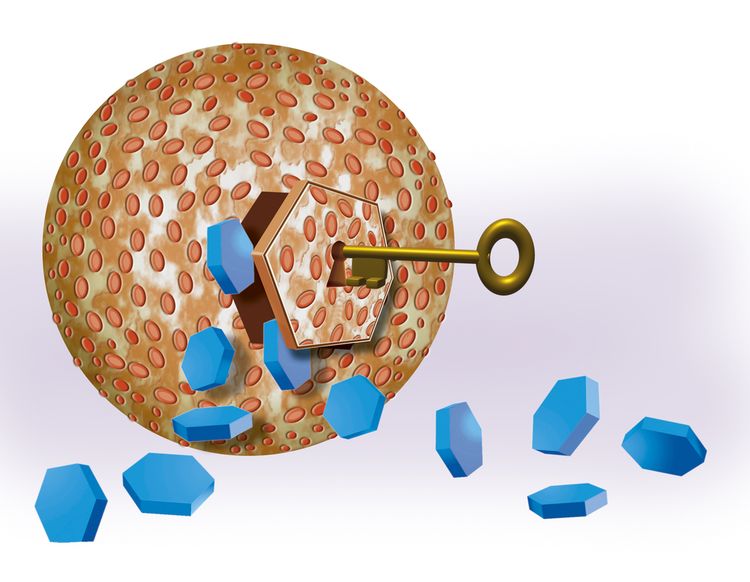
Sugar Has Been Linked to Obesity and Illness
According to the USDA, the average American consumes more than 150 pounds of added sugar per year. This overload of sugar isn’t without consequences to our health and weight.5
Dr. Hyman explains the impact of eating simple carbohydrates like sugar or starch. “An abundance of simple sugars in the diet goads the body into releasing more and more insulin. Eventually, the cellular locks get worn down from overuse. Like a key that’s lost its teeth, insulin loses its ability to easily open the cellular door. The cells become numb to the effects of insulin.
As a result, the body pumps out more and more of the hormone to keep its blood sugar levels in check. Eventually, this cycle leads to a dangerous condition called insulin resistance.” Dr. Hyman calls this the “blood sugar cascade.”2 According to Dr. Hyman, insulin resistance leads to belly fat, increased blood pressure and cholesterol, infertility, depression, fatigue, dementia, and cancer.
According to Kelly Brogan, MD, this blood sugar roller coaster that can lead to insulin resistance alarms the body and causes the adrenal glands to work overtime. “The more days of your life you engage in this pattern of sugar and refined carb consumption, the more your brain suffers, potentially even putting you at risk for Alzheimer’s dementia down the line.” Dr. Brogan warns that sugar can also lead to inflammation and derail hormones.6
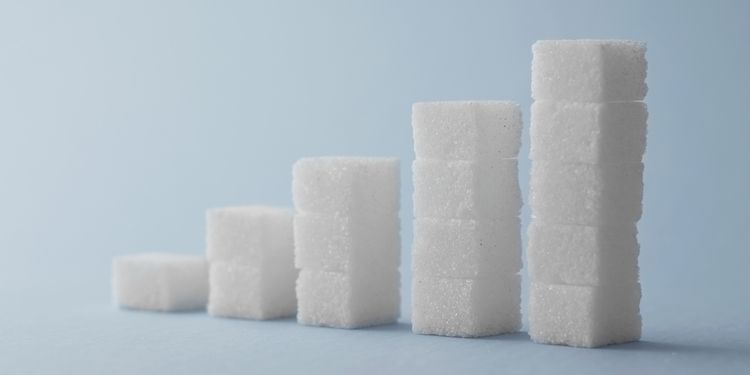
Sugar is Addicting
Research supports the theory that sugar is addicting. If you’ve struggled with reducing or eliminating sugar from your diet, it could be because sugar affects the same reward area of the brain as alcohol, nicotine, and narcotics.9 Researchers have even found that the very act of eating high-fat, high-sugar foods shares similar features as other addictive behaviors.10
“Being addicted to sugar and flour isn’t an emotional eating disorder. It’s a biological disorder, driven by hormones and neurotransmitters that fuel sugar and carb cravings—leading to uncontrolled overeating. This isn’t a limited phenomenon. It’s the reason nearly 70% of Americans and 40% of kids are overweight,” says Dr. Mark Hyman. According to Dr. Hyman, sugar is eight times as addictive as cocaine.11
Are you a victim of sugar addiction? Aviva Romm, MD, uses that term deliberately. According to Dr. Romm, the following characteristics of addiction can often be applied to behaviors and thoughts about sugary foods:12
- Obsession with (constantly thinking of) the object, activity, or substance
- Seeking out or engaging in the behavior even though it’s causing harm, such as physical health issues
- Compulsively engaging in the activity—that is, doing it over and over even if you don’t want to and finding it difficult to stop
- Upon cessation of the activity, withdrawal symptoms often occur, including irritability, cravings, restlessness, or depression
- Lack of sense of control as to when, how long, or how much the behavior will continue
- Denying problems resulting from engagement in the behavior
- Depression about the behavior
- Low self-esteem associated with the behavior and anxiety over the perceived lack of control
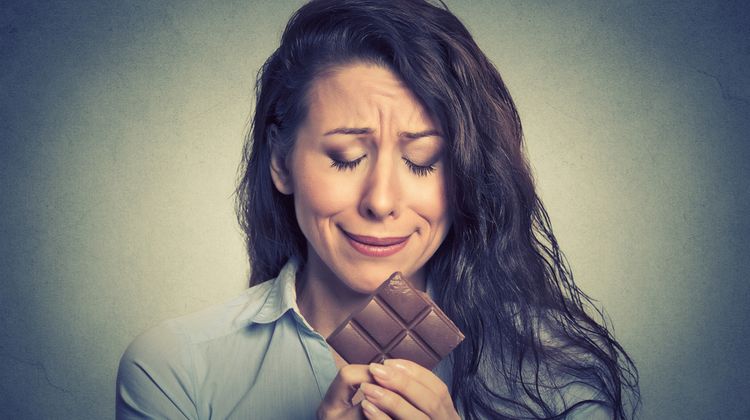
Are You Addicted to Sugar?
Dr. Mark Hyman provides five clues that you may be addicted to sugar.13 Do any of these apply to you?
- You consume certain foods even if you’re not hungry because you crave them.
- You worry about cutting down on certain foods.
- You feel sluggish or fatigued from overeating.
- You have health or social problems (affecting school or work) because of food issues and yet keep eating the way you do despite negative consequences.
- You need more and more of the foods you crave to experience any pleasure or reduce negative emotions.
If you answered yes to any of the above, it’s okay—you can beat your sugar cravings and reduce or eliminate added sugar from your diet.
Understanding why your body craves sugar and how it impacts your brain in an addictive manner will help as you go through the steps to get rid of sugar. In order to succeed, you need a plan. Here are eight steps that will successfully get you off sugar and improve your health.

1. Beat Sugar Cravings with Greens
By eating greens, drinking green smoothies, and getting plenty of nutrient-dense plant foods, you can avoid the nutrient deficiencies that express themselves as cravings. Abel James, a leader in the Paleo diet community who’s known as The Fat Burning Man, recommends that you drink a green smoothie every day and eat huge salads to get your greens.14
Dana James is a nutritionist who thinks a green vegetable juice is the most power-packed way to beat sugar cravings. “Cucumbers are naturally sweet when juiced, and they’ll trick your taste buds into thinking you’ve had something sweet. If green vegetable juices are new to you, add 1/2 an apple to sweeten it.”15
Dr. Andrew Weil recommends a Chinese medicine-inspired strategy—eating more bitter foods, such as cooked greens, endive, and radicchio to balance out sweet cravings.4
There’s an even simpler reason for filling up your fridge, glass, and plate with more greens when you’re trying to beat sugar cravings. According to Dr. Aviva Romm, “If you only have healthy food choices, you’re more likely to eat well.”12
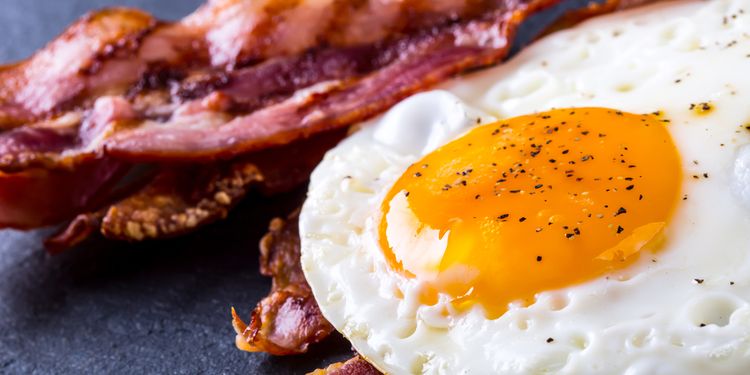
2. Beat Sugar Cravings with Protein
Protein is a top recommendation from many health experts as a way to stop sugar cravings in their tracks.
“Eat protein with every meal.” – Abel James, Fat Burning Man14
“Blood sugar balancing is key to alleviating food cravings. Eat a healthy breakfast with a good quality protein every day. Eat only nutrient-rich foods, emphasizing proteins, high-quality fats, and vegetables.” – Aviva Romm, MD12
“Protein, protein, protein at every meal—especially breakfast—is the key to balancing blood sugar and insulin and cutting cravings. Start the day with whole farm eggs or a protein shake.” – Mark Hyman, MD11
“Have a breakfast of protein, fat, and phytonutrients to start your day off right. The typical breakfast full of carbs and sugary or starchy foods is the worst thing you can do for sugar cravings, as you’ll have them all day. Having a good breakfast is essential to prevent sugar cravings.” – Frank Lipman, MD16
“One of the fastest ways to calm your sugar cravings is by eating protein. Protein is great for filling you up and keeping you satisfied, but did you know that it can actually decrease your cravings, too? It puts the brakes on our neuronal reward system, the brain chemicals that make us feel good and motivate us to get more food, even when we’re not hungry.” – Sara Gottfried, MD.17
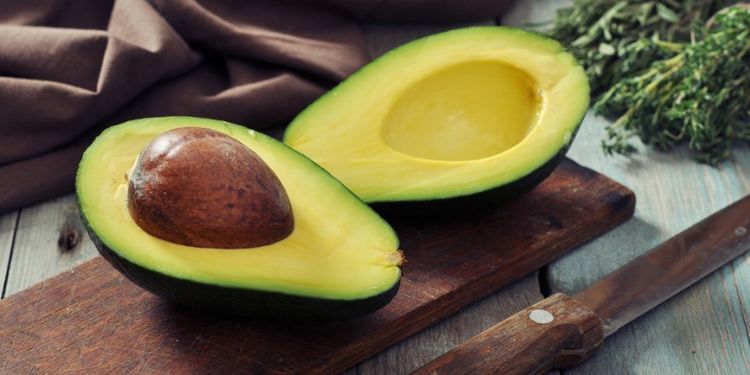
3. Beat Sugar Cravings with Healthy Fats
Can you fight sugar with fat? A study of diets rich in monounsaturated fatty acids has shown that healthy dietary fats improve insulin levels in insulin-resistant participants and decreased overall insulin concentrations.24
Dr. Mark Hyman recommends using healthy fats to combat sugar.11 “Fat doesn’t make you fat, sugar does. Fat makes you full, balances your blood sugar, and is necessary for fueling your cells.” He recommends adding good fats to every meal, such as:
- Nuts and seeds
- Extra-virgin olive oil
- Coconut butter
- Avocados
- Omega-3 fats from fish
Kelly Brogan, MD, recommends to her patients liberal amounts of grass-fed ghee, coconut oil, and animal fats from pastured sources along with a sugar fast.
“The hallmark of a Paleo diet—high natural fat intake, including and notably featuring saturated fat—is the antidote to much that ails the Standard American Dietary victim,” says Dr. Brogan.6

4. Beat Sugar Cravings with Improved Sleep Habits
Falling short on sleep can drive sugar and carb cravings by raising hunger hormones and decreasing appetite-suppressing hormones. According to Dr. Hyman, “You want more energy if you don’t sleep, so you go toward quickly absorbed sugars. Sleep is the best way to fight against the drive to overeat. You literally can sleep your cravings and your weight away.”11
Mark Sisson has even more reasons inadequate sleep causes your sugar cravings. Sisson states that missing sleep is a potent stressor that will raise cortisol and cause cravings. He also says that sleep can make food more rewarding by compelling further consumption, even past the point of physical discomfort. According to Sisson, even a single night of sleep deprivation can increase the desire for and pleasure derived from junk food.3
How much sleep do you need to beat sugar cravings? Dr. Aviva Romm recommends 7 to 8 hours each night to avoid the activation of your stress response and increased cortisol levels.12
Sara Gottfried, MD recommends even more, at 7 to 9 hours. “Beyond just making you a caffeinated morning-after mess, inadequate slumber knocks numerous hormones out of whack, paving the road for hunger, cravings, and overeating,” says Gottfried. “You want to prepare for quality, uninterrupted sleep. About an hour before bed, turn off electronics and develop an unwinding bedtime ritual like a hot bath, chamomile tea, and a good (but not great) novel.”17

5. Beat Sugar Cravings by Reducing Stress
What does stress have to do with sugar cravings? “If you’re stressed, your hormones go crazy. Cortisol goes up, which makes you hungry, causes belly fat storage, and leads to Type 2 diabetes,” says Dr. Mark Hyman. He recommends taking deep breaths when you’re feeling stressed to quickly move you out of the stress state and shift your metabolism from fat storage to fat-burning mode.11
Mark Sisson agrees. “Studies confirm that in people with elevated or dysregulated cortisol (often due to stress), sugar and carb cravings skyrocket. Another result of stress is the elevation of ghrelin, a hunger hormone that increases cravings.”
According to Sisson, this suggests that stress eating takes the specific form of sugar and carb eating as the body deals with excess cortisol and releases ghrelin.3
Meditation can help reduce the stress that’s causing your cortisol levels and sugar cravings to rise. “Even 5 minutes of mindfulness meditation twice daily can calm your nervous system, help your cortisol levels return to normal, and transform your life,” says Dr. Aviva Romm.12
Robb Wolf recommends meditation and deep breathing as a way not only to manage stress, but also to suppress addiction. “Practicing breathing techniques used during meditation and other relaxation practices, yoga breathing, and chest breathing (which is most commonly used in the reduction of stress) can all help relax our minds of the arousal that comes when we think of certain foods,” says Wolf.
“Meditation is another means that has been successful in treating addiction, and this could be worth a serious try if you’re suffering from carb addiction.”18
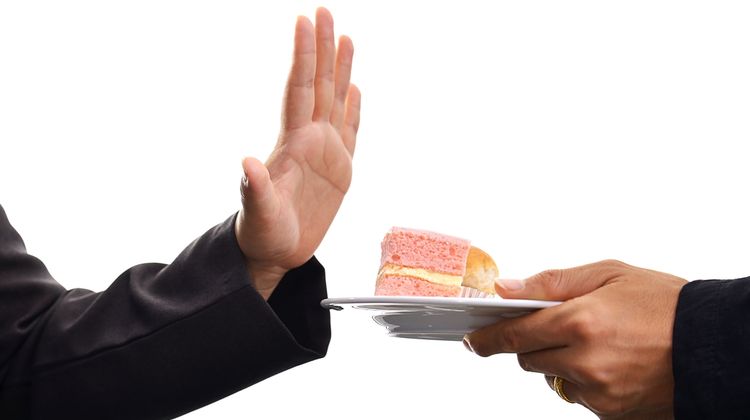
6. Beat Sugar Cravings by Rejecting Cheat Day
When you’re facing an addiction, the best way to handle it is to stop it completely. Dr. Hyman recommends a cold turkey approach to detox from sugar. “Stop consuming all forms of sugar, flour products, and artificial sweeteners, which cause increased cravings and slow metabolism and lead to fat storage.”
According to Dr. Hyman, you have to stop completely in order for your brain to reset. That means eliminating refined sugars, sodas, fruit juices, and artificial sweeteners from your diet.11
Joel Fuhrman, MD, also recommends cutting out all sugar. “It’s usually more effective if all sugar and processed sweets are cut out completely. It’s not going to be easy, but within a few days, it will reset your body so you’re not craving sweets.” He warns that, just like a drug, you can experience withdrawal symptoms when you stop eating a food you’re addicted to.
He recommends letting mildly uncomfortable sensations such as headaches, feeling queasy, and being tired come and go over a few days. “You’ll find it’s much easier to control your food cravings and desire to overeat and eat sweets. Plus, during this process, we’ll be flooding the body with micronutrients and phytochemicals to help the brain cope and break this cycle.”20
Dr. Frank Lipman cautions against “sugar in disguise” when you’re eliminating sugar from your diet. According to Dr. Lipman, most of the “complex” carbohydrates we consume, like bread (even whole wheat), bagels, and pasta aren’t really complex at all. They’re usually highly refined or act just like sugars in the body and are to be avoided.21

7. Beat Sugar Cravings with Supplements
If you need a bit of external assistance handling your sugar cravings, there are supplements that can support your mind and body. Here are some to consider.
Dr. Frank Lipman recommends the following for sugar cravings:
- L-glutamine: 1,000–3,000mg every couple of hours as needed
- Multivitamin and mineral supplement: Nutrient deficiencies can make cravings worse. To improve blood sugar control, choose one that includes omega-3 fatty acids, chromium, vitamin B3, and magnesium16
Dr. Mark Hyman recommends:
- Vitamin D: To regulate hunger hormones
- Omega-3 fatty acids: For normal brain cell function and insulin control
- Natural supplements to control cravings, including L-glutamine, tyrosine, 5-HTP, chromium, and glucomannan fiber.1
Dr. Weil is an advocate for the Ayurvedic herb Gymnema sylvestre, which is known as the “destroyer of sugar,” to help fight sugar cravings. Gymnema, also known as gurmar, is reputed to slow both the absorption of sugar into the bloodstream and the conversion of sugar into fat. According to Dr. Weil, “It also may help curb your desire for sweets.”4

8. Beat Sugar Cravings with Simple Lifestyle Changes
When you find yourself in the midst of an intense craving for sugar, follow this advice from Deepak Chopra, MD. “Before you give yourself a fix of sugar, stop, close your eyes, and wait a moment. Ask yourself: Do I want to make this choice? Often, the craving will pass naturally. Even if you give yourself a fix this time, keep repeating this exercise. The more opportunities you have to make the right choice, the higher your rate of success.”19
Sarah Ballantyne, PhD, has a final practical strategy for dealing with sugar cravings: Don’t keep sweets in the house. “Whatever your greatest weakness is, don’t have it where you can reach it in the midst of a strong craving,” says Dr. Ballantyne.22
Giving up sugar doesn’t mean you’ll never enjoy sweetness ever again. All of the experts agree that fruit is a healthy part of your diet and a sweet way to get essential nutrients.
Dr. Andrew Weil recommends fruit if you’re going to give in to a craving for something sweet. “Try to satisfy your cravings with fruits that are low on the glycemic index (berries, cherries, apples, pears), which are healthier than other sources of sugar and give you the added benefit of fiber.”4
You can beat sugar cravings and experience the many health benefits that come with getting rid of sugar’s addictive hold on your life. Eat good food, get more sleep, and reduce your stress, and you can give up sugar for good.
